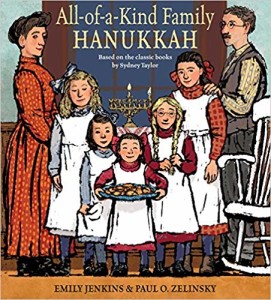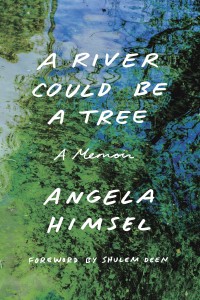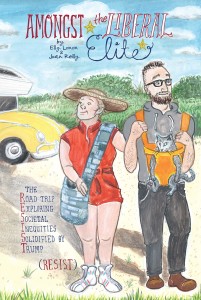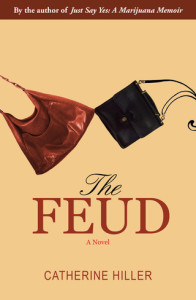The Lilith Blog
December 3, 2018 by Elizabeth Michaelson Monaghan
Revisiting My Past with All-of-a-Kind Family Hanukkah
 Several decades have passed since I encountered an All-of-a-Kind Family book for the first time. The newest installment looks different (as do I), but our reunion was sweet.
Several decades have passed since I encountered an All-of-a-Kind Family book for the first time. The newest installment looks different (as do I), but our reunion was sweet.
All-of-a-Kind Family Hanukkah (Schwartz & Wade, $17.99) follows the youngest sister of five, Gertie as she tries to help her sisters make latkes. The book is unlike Sydney Taylor’s original series in striking ways: author Emily Jenkins uses the present tense to convey a young child’s sense of immediacy, and Paul O. Zelinsky’s bold and tender color illustrations look nothing like Helen John’s original detailed ink drawings. Still, the characters were immediately recognizable, and the book retains the series’ essential New York-yness. Reading it, I was filled with the cozy longing the series has always triggered in me.
- No Comments
December 3, 2018 by Eleanor J. Bader
Nancy Romer’s 50 Years of Activism
Although Nancy Romer taught psychology at Brooklyn College for 42 years, she is adamant that she is not an academic. “I’m an organizer,” she says.
For the past 50-plus years, Romer has participated in, and often led, some of the most important social justice movements in the US: opposing war and militarism; fighting the increasing privatization of public education; and challenging racism, sexism, and homophobia. Her most recent work has centered around food and climate justice, including pushing pension funds to divest from the fossil fuel industry, and supporting the struggles of workers at home and abroad.
Lilith’s Eleanor J. Bader caught up with Romer a few days after she returned to New York from Ohio, where she’d spent several weeks knocking on doors and making phone calls to ensure that the state’s progressive senator, Sherrod Brown, won re-election.
- No Comments
November 30, 2018 by Yona Zeldis McDonough
From a Doomsday Church to Judaism
 Angela Himsel grew up as one of eleven children in an evangelical family that lived in rural Indiana. The Worldwide Church of God informed her thinking and fulfilled her spiritual needs. Yet she eventually went to Israel, married a Jewish man and is now a practicing Jewish woman. She talks to Lilith Fiction Editor Yona Zeldis McDonough about her unusual journey.
Angela Himsel grew up as one of eleven children in an evangelical family that lived in rural Indiana. The Worldwide Church of God informed her thinking and fulfilled her spiritual needs. Yet she eventually went to Israel, married a Jewish man and is now a practicing Jewish woman. She talks to Lilith Fiction Editor Yona Zeldis McDonough about her unusual journey.
YZM: Did you know many Jewish people when you were growing up?
AH: There was one Jewish family in my town. I was acquainted with them and knew they were Jewish but didn’t fully understand what it was to “be Jewish.” They could have been Albanian. Being Jewish didn’t imply anything to me, neither positive nor negative.
- No Comments
November 29, 2018 by admin
A Mizrachi Jew, from Memphis to Hillel
Zahava— with her mother who made kugel for shabbat and her father who went by Yonasan (not Yonatan); her pale, lightly freckled skin complimented by her dark, wavy hair (that was never certifiably curly but had the volume that suggested it easily could be); who had a grandfather on one side who was a holocaust survivor and a maternal grandmother whose accent was unmistakably “bubby,” especially when she tawked about her homemade applesawce—was my childhood neighbor, first best friend, and most accurate model of what it looked like to be an American Jew.
I grew up in a small, tightly knit modern-Orthodox Jewish community in Memphis, Tennessee. My mother is half-Yemeni, half-Hungarian, and my dad is Kurdish (Iraqi Kurds). Aside from a few non-white folk that came and went during my childhood, my parents, siblings and I were the only Mizrachim in our otherwise Ashkenazi community. In my fourteen years of day-school education, I never once heard a Jewish educator utter the word mizrachi. From a young age, it was obvious to me that I was different.
- No Comments
November 20, 2018 by Eleanor J. Bader
Lovingly Skewering The Liberal Elite
When Elly Lonon and Joan Reilly got word that powerHouse Books wanted to publish their graphic novel, Amongst the Liberal Elite: The Road Trip Exploring Societal Inequities Solidified by Trump (RESIST), in January 2018, they were absolutely thrilled.
But then reality barged in.
 Not only did the publisher want the book completed in just five month to peg the book’s release to the midterm elections—but the same week that they signed the contract, Reilly was diagnosed with an aggressive form of brain cancer that necessitated surgery, radiation, and chemo.
Not only did the publisher want the book completed in just five month to peg the book’s release to the midterm elections—but the same week that they signed the contract, Reilly was diagnosed with an aggressive form of brain cancer that necessitated surgery, radiation, and chemo.
“Our mantra,” Lonon told Lilith, “quickly became, ‘don’t let the perfect be the enemy of the good.’” She spoke by phone with Lilith in early November and covered the book’s evolution and its hilarious depiction of Alex and Michael, a well-meaning, straight, white couple who are nonetheless often clueless about their class and race privilege.
- No Comments
November 19, 2018 by Amy Stone
A Final “Shoah” Installment Tells Women’s Stories
What’s left for filmmaker Claude Lanzmann to tell us about the Shoah? At his death at 92 this past July, with rare honors at Les Invalides in Paris, he had gone from teenage fighter in the French resistance to the tireless creator of “Shoah,” its 9-plus hours of interviews followed by feature-length spinoffs.
Much of Lanzmann’s work concentrates on men’s stories. Now women are getting the last words. And the telling is in the details. Would these stories have the same impact if they were not part of the Lanzmann canon? I think not. But he showed us a different way of looking at the Shoah. As historian Deborah Lipstadt says, Lanzmann was trying to instill modesty of judgment. We don’t know what we’d do in their place.
- No Comments
November 19, 2018 by Yona Zeldis McDonough
The Modest Fashionista Who Became Cutting Edge
As a fashion maven, I’ve noticed that in New York, many Orthodox Jewish women favor modest, well-made clothing that just falls short of—or maybe intentionally steps aside from—chic or cutting edge.
Enter Batsheva Hay, nee Rosenberg, a self-styled fashionista who cultivated her penchant for mixing vintage with contemporary pieces to create her own unique look. Recent profiles in the New Yorker and the New York Times reveal a fascinating story: When she was in her twenties, and working as a lawyer in New York City, she met a photographer named Alexi Hay, a well known fashion photographer. Hay had recently become an Orthodox Jew, and he nurtured a growing interest in Orthodox clothing. Batsheva shared his interest and he even began photographing her wearing the covered up styles favored by the frum.
- 1 Comment
November 15, 2018 by Elana Rebitzer
What Happens in the Real World Stays There

While at summer camp, my campers aren’t allowed to have their phones on them. There are a multitude of reasons for our no-phone policy, but high among them is that we “disconnect to reconnect.” By removing internet access from our campers, we staffers create an immersive environment that can’t easily be affected by the happenings of the outside world. Even though staff members do have access to our phones, we have collectively agreed not to share with our children whatever information we learn.
If a counselor is having a bad day, that information ideally stays among the staff. This way, in the interest of allowing the campers to focus on having a fun and fulfilling summer, we create a world where news from the outside world, from celebrity engagements to mass shootings, does not penetrate.
- No Comments
November 15, 2018 by Yona Zeldis McDonough
Female Friendship and Competition in a Novel of the 90s
Lilith’s Fiction Editor Yona Zeldis McDonough talks with author Catherine Hiller about her sharp, smartly observed period novel that deals with female friendship, office edition.
 YZM: Why did you choose to set the novel in the 1990s?
YZM: Why did you choose to set the novel in the 1990s?
CH: It was a pivotal time in American life, when email, digital cameras, and cell phones were coming into common use. I wanted to dramatize the impact of these digital technologies. For instance, the book opens with Nikki opening her email at work (she doesn’t have email at home) and seeing a message and an attachment from an unfamiliar address. She idly opens the attachment to find it is a photograph of herself and two men, naked. She’d been drugged and raped on a business trip but hadn’t known she’d been photographed.
- No Comments
November 14, 2018 by admin
12 New Books About Contemporary Jewish Identity — All by Women!
The cover of the New York Times Book Review this weekend features a review of 5 recent books detailing the American Jewish experience — all of which were written by men. As illuminating as each of those books may be individually, and as deeply as the review engages with them, their aggregation egregiously leaves out the experiences and perspectives of approximately half of American Jews (if not more!).
Critics on Twitter immediately noted how unfortunate it is that the piece didn’t at the very least call attention to the cutting-edge academic scholarship and writing by many Jewish women, including feminists.
But the debate goes beyond academic (specialized) vs. trade (general audience) dichotomies. In 2018, it’s simply not enough to throw up ones hands and say, “There aren’t enough trade books by women!” The critic’s job is, in part, to wrestle with why trends in an industry exist, and to therefore, in this case, ask what truths five books by white Ashkenazi men might all be missing about contemporary Jewish identity.
- 1 Comment
 Please wait...
Please wait...